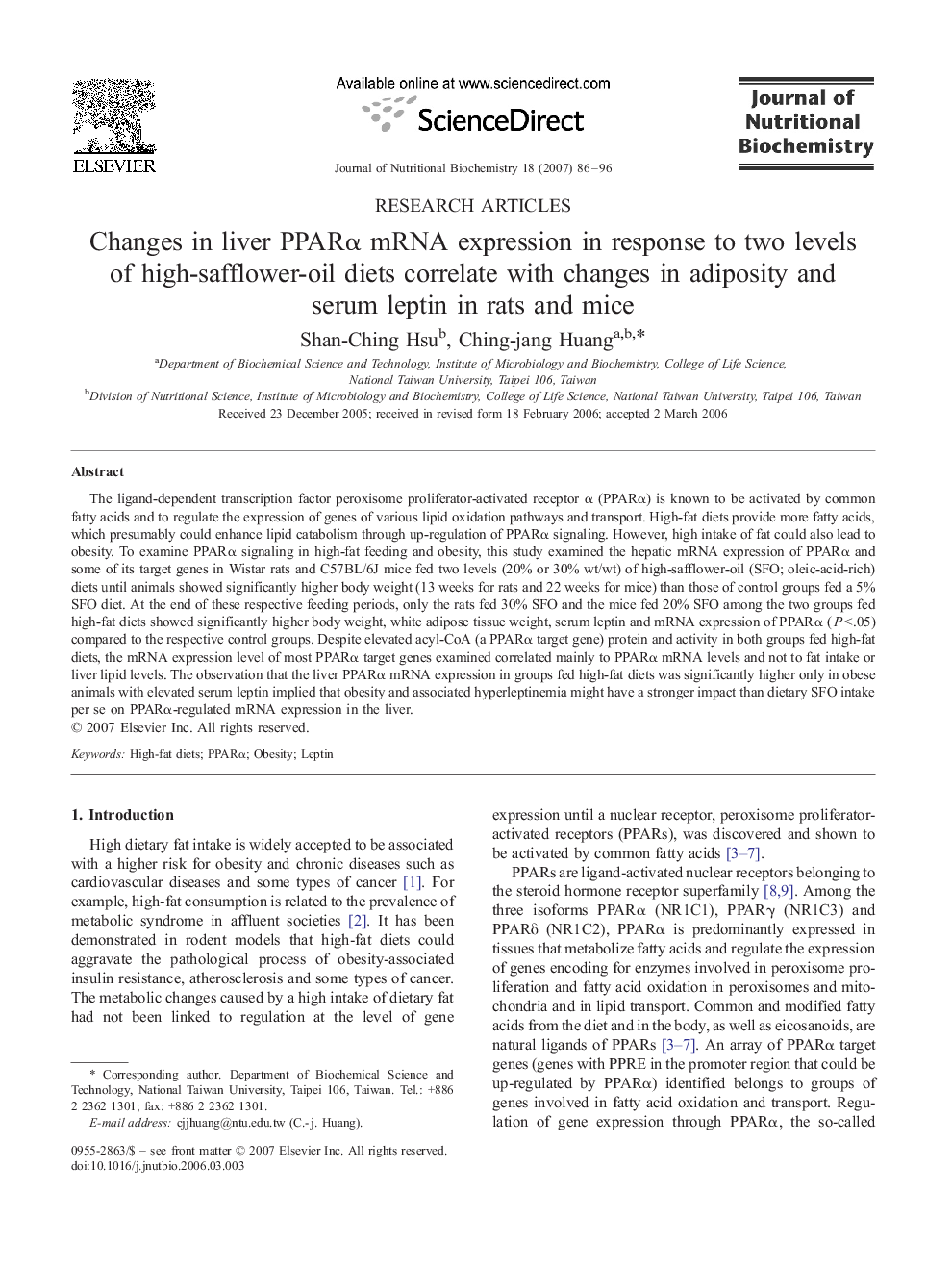| Article ID | Journal | Published Year | Pages | File Type |
|---|---|---|---|---|
| 1990813 | The Journal of Nutritional Biochemistry | 2007 | 11 Pages |
The ligand-dependent transcription factor peroxisome proliferator-activated receptor α (PPARα) is known to be activated by common fatty acids and to regulate the expression of genes of various lipid oxidation pathways and transport. High-fat diets provide more fatty acids, which presumably could enhance lipid catabolism through up-regulation of PPARα signaling. However, high intake of fat could also lead to obesity. To examine PPARα signaling in high-fat feeding and obesity, this study examined the hepatic mRNA expression of PPARα and some of its target genes in Wistar rats and C57BL/6J mice fed two levels (20% or 30% wt/wt) of high-safflower-oil (SFO; oleic-acid-rich) diets until animals showed significantly higher body weight (13 weeks for rats and 22 weeks for mice) than those of control groups fed a 5% SFO diet. At the end of these respective feeding periods, only the rats fed 30% SFO and the mice fed 20% SFO among the two groups fed high-fat diets showed significantly higher body weight, white adipose tissue weight, serum leptin and mRNA expression of PPARα (P<.05) compared to the respective control groups. Despite elevated acyl-CoA (a PPARα target gene) protein and activity in both groups fed high-fat diets, the mRNA expression level of most PPARα target genes examined correlated mainly to PPARα mRNA levels and not to fat intake or liver lipid levels. The observation that the liver PPARα mRNA expression in groups fed high-fat diets was significantly higher only in obese animals with elevated serum leptin implied that obesity and associated hyperleptinemia might have a stronger impact than dietary SFO intake per se on PPARα-regulated mRNA expression in the liver.
